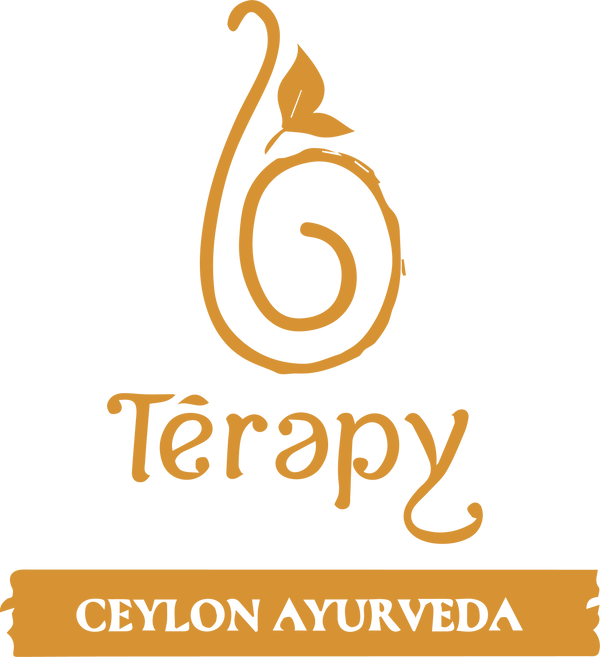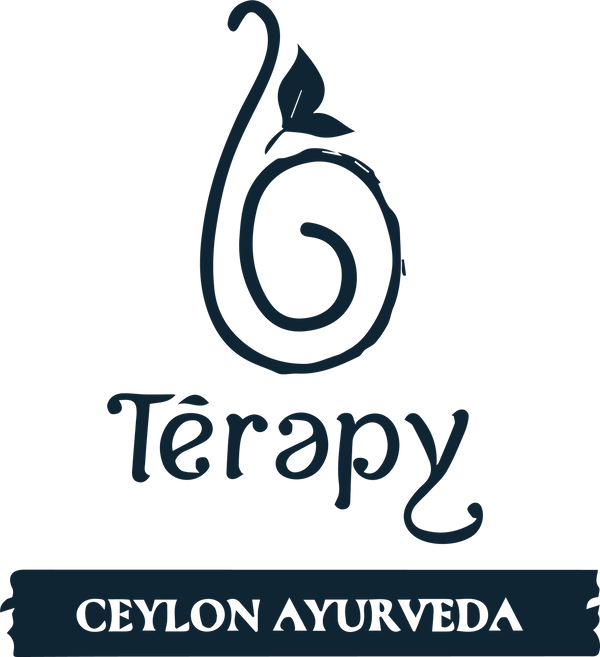In a world inundated with stressors and demands, it’s no wonder people are constantly seeking ways to boost their energy levels and enhance their overall well-being. While energy drinks and caffeine-laden beverages may provide a temporary jolt, they often come with undesirable side effects and long-term health risks. However, there’s a natural alternative that has been cherished for centuries in Ayurveda – the ancient holistic system of medicine – Energy-Boosting herbal teas.
Among the plethora of herbal teas available, Ayurvedic energy-boosting herbal teas stand out for their unique blend of herbs and spices, meticulously formulated to invigorate the body and uplift the spirit. In this article, we delve into the rich tapestry of Ayurveda to explore the profound health benefits of consuming these rejuvenating brews, supported by scientific evidence and centuries of traditional wisdom.
Understanding Ayurvedic Principles
Ayurveda, often dubbed as the "science of life," is a holistic approach to health and wellness that originated in India over 5,000 years ago. Central to Ayurvedic philosophy is the belief that optimal health is achieved through a harmonious balance of mind, body, and spirit. According to Ayurveda, imbalances in the body's three doshas – Vata (air and space), Pitta (fire and water), and Kapha (earth and water) – can lead to various ailments, including fatigue and lack of energy.
Ayurvedic Herbal Teas for Energy
Ayurvedic herbal teas are meticulously crafted blends of herbs, spices, and botanicals, each selected for its unique therapeutic properties. These teas are specifically formulated to balance the doshas, promote vitality, and enhance energy levels naturally. Practiced in the Indian subcontinent for centuries, these herbs are proven for the effectiveness and overall wellness.
Let’s explore some of the key ingredients commonly found in Ayurvedic energy-boosting herbal teas and their respective health benefits:
-
Ashwagandha (Withania somnifera)
Ashwagandha, also known as Indian subcontinents ginseng, is a revered adaptogenic herb in Ayurveda known for its ability to combat stress and fatigue while promoting overall vitality. Studies have shown that ashwagandha supplementation can significantly reduce stress levels and improve energy levels and cognitive function [1]. A combination of Ashwagandha and Ginger is an ideal concoction to heal headaches and mild Migraine.
You can enjoy a wholesome herbal remedy experience with Térapy Ceylon’s Reviving Ginger
-
Tulsi (Ocimum tenuiflorum)
Tulsi, or holy basil, is another prized herb in Ayurveda revered for its adaptogenic properties. Rich in antioxidants and phytochemicals, Tulsi helps combat oxidative stress, boost immunity, and enhance energy levels [2]. Research suggests that Tulsi consumption may improve physical endurance and reduce fatigue [3]
-
Ginger (Zingiber officinale)
Ginger is a warming spice renowned for its digestive benefits and anti-inflammatory properties. In Ayurveda, ginger is often used to kindle the digestive fire (agni) and enhance metabolism, thereby promoting energy production within the body [4]. Keeping your gut healthy is the best way to help your daily nutrients to be absorbed into your system and keep you healthy and energized.
Specially formulated to maintain optimal gut health and boost your inner agni, Térapy Ceylon’s Stomach Ease an ancient Ayurvedic herbal tea remedy.
-
Cinnamon (Cinnamomum verum)
Cinnamon, with its sweet and warming flavor, is valued in Ayurveda for its ability to balance blood sugar levels and support healthy circulation. By stabilizing blood sugar, cinnamon helps prevent energy crashes and maintains sustained vitality throughout the day [5]
-
Cardamom (Elettaria cardamomum)
Cardamom is a fragrant spice prized in Ayurveda for its digestive and detoxifying properties. It helps alleviate digestive discomfort and bloating, thus promoting optimal nutrient absorption and energy production [6]
-
Moringa (Moringa oleifera)
Moringa, often referred to as the "miracle tree," is packed with essential nutrients, including vitamins, minerals, and antioxidants. In Ayurveda, moringa is valued for its ability to boost energy levels, support mental clarity, and enhance overall vitality [7].
Moringa is a multifaceted nutritional plant offering a range of health benefits and nutrients. Keeping your general health in good balance is the most powerful holistic step towards energizing yourself and keeping fit.
Based on ancient Ayurvedic remedies and developed by Ayurvedic doctors from the indigenous medical faculty in Sri Lanka Térapy Ceylon’s Moringa Power is a perfect everyday brew to keep you healthy and energized.
-
Triphala
Triphala, a combination of three fruits – Amalaki (Emblica officinalis), Bibhitaki (Terminalia bellirica), and Haritaki (Terminalia chebula) – is a cornerstone of Ayurvedic medicine. Triphala is revered for its detoxifying properties, promoting healthy digestion, and supporting optimal energy levels [8]
Amalaki is from the same family as Amla and is packed with body balancing nutritional benefits. An Amla a day is highly recommended in the science of holistic living. With that being said a daily cup of Térapy Ceylon’s ImmunTea will not only boost your immunity support but keep you healthy and soothe those everyday body aches and pains.
-
Peppermint (Mentha piperita)
Peppermint is known for its refreshing flavor and soothing properties. In Ayurveda, peppermint is valued for its ability to alleviate digestive discomfort, improve mental clarity, and uplift the mood, thereby promoting energy and vitality [9]
Try Térapy Ceylon’s Peppermint Boost after meals to help invigorate you and support healthy digestion.
The Science Behind Ayurvedic Herbal Teas:
While Ayurvedic principles have stood the test of time, modern scientific research is increasingly validating the health benefits of Ayurvedic herbs and spices. Numerous studies have investigated the efficacy of individual herbs commonly used in Ayurvedic herbal teas and their impact on energy levels and overall well-being.
For instance, a randomized, double-blind, placebo-controlled study published in the Journal of Ayurveda and Integrative Medicine found that participants who consumed Ashwagandha root extract experienced significant improvements in energy levels, concentration, and vitality compared to the placebo group [10]. Similarly, research published in the Journal of Ethnopharmacology demonstrated that Tulsi supplementation enhanced physical endurance and reduced fatigue in animal models subjected to swimming-induced stress [11].
Moreover, a systematic review published in the International Journal of Food Sciences and Nutrition concluded that ginger supplementation may improve markers of physical performance and reduce exercise-induced muscle soreness [12]. These findings underscore the potential of Ayurvedic herbs and spices to enhance energy levels, combat fatigue, and promote overall vitality.
Incorporating Ayurvedic Herbal Teas into Your Routine
Integrating Ayurvedic herbal teas into your daily routine is a simple yet effective way to support energy levels and promote overall well-being. Whether enjoyed in the morning to kickstart your day or as a mid-afternoon pick-me-up, these rejuvenating brews offer a natural and sustainable alternative to conventional energy-boosting beverages
To reap the maximum benefits of Ayurvedic herbal teas, consider the following tips:
- Choose high-quality, organic herbal teas sourced from reputable suppliers to ensure purity and potency.
- Experiment with different blends and flavors to find the ones that resonate with your palate and preferences.
- Enjoy your herbal tea mindfully, savoring each sip and taking a moment to pause and reconnect with yourself.
- Incorporate Ayurvedic lifestyle practices such as mindful eating, regular exercise, and stress management techniques to enhance the efficacy of herbal teas.
Conclusion:
In a world where energy drinks and caffeine-laden beverages reign supreme, Ayurvedic energy-boosting herbal teas offer a refreshing alternative rooted in ancient wisdom and backed by modern science. By harnessing the power of nature's botanical bounty, these rejuvenating brews nourish the body, uplift the spirit, and restore balance to mind, body, and soul. So, why not embark on a journey of holistic wellness and vitality with a steaming cup of Ayurvedic herbal tea?
References:
- Chandrasekhar, K., Kapoor, J., & Anishetty, S. (2012). A prospective, randomized double-blind, placebo-controlled study of safety and efficacy of a high-concentration full-spectrum extract of Ashwagandha root in reducing stress and anxiety in adults. Indian Journal of Psychological Medicine, 34(3), 255–262.
- Cohen, M. M. (2014). Tulsi – Ocimum sanctum: A herb for all reasons. Journal of Ayurveda and Integrative Medicine, 5(4), 251–259.
- Saxena, R. C., Singh, R., Kumar, P., Negi, M. P., Saxena, V. S., Geetharani, P., & Singh, R. (2012). Efficacy of an extract of Ocimum tenuiflorum (OciBest) in the management of general stress: A double-blind, placebo-controlled study. Evidence-Based Complementary and Alternative Medicine, 2012, 894509.
- Marx, W., Ried, K., McCarthy, A. L., Vitetta, L., Sali, A., McKavanagh, D., & Isenring, L. (2017). Ginger-Mechanism of action in chemotherapy-induced nausea and vomiting: A review. Critical Reviews in Food Science and Nutrition, 57(1), 141–146.
- Kaur, R., Kapoor, K., Kaur, H., & Khurana, S. (2013). An update on pharmacological properties of cinnamon. Journal of Traditional and Complementary Medicine, 3(3), 142–146.
- Sengupta, A., Bhattacharjee, S., & Cardoso-Taketa, A. (2018). Cardamom (Elettaria cardamomum) and its active constituent, 1,8-cineole. Methods in Molecular Biology, 1693, 383–391.
- Stohs, S. J., Hartman, M. J., & Singletary, K. (2015). Moringa oleifera: A review of the medical evidence for its nutritional, therapeutic, and prophylactic properties. Part 1. Trees for Life Journal, 10(1), 1–5
- Bag, A., Bhattacharyya, S. K., Chattopadhyay, R. R., & Chattopadhyay, R. N. (2013). Review on Triphala: A functional food and herbal medicine in Ayurveda. International Journal of Food Sciences and Nutrition, 64(3), 392–398.
- McKay, D. L., & Blumberg, J. B. (2006). A review of the bioactivity and potential health benefits of peppermint tea (Mentha piperita L.). Phytotherapy Research, 20(8), 619–633.
- Chandrasekhar, K., Kapoor, J., & Anishetty, S. (2012). A prospective, randomized double-blind, placebo-controlled study of safety and efficacy of a high-concentration full-spectrum extract of Ashwagandha root in reducing stress and anxiety in adults. Indian Journal of Psychological Medicine, 34(3), 255–262.
- Saxena, R. C., Singh, R., Kumar, P., Negi, M. P., Saxena, V. S., Geetharani, P., & Singh, R. (2012). Efficacy of an extract of Ocimum tenuiflorum (OciBest) in the management of general stress: A double-blind, placebo-controlled study. Evidence-Based Complementary and Alternative Medicine, 2012, 894509.
- Marx, W., Ried, K., McCarthy, A. L., Vitetta, L., Sali, A., McKavanagh, D., & Isenring, L. (2017). Ginger-Mechanism of action in chemotherapy-induced nausea and vomiting: A review. Critical Reviews in Food Science and Nutrition, 57(1), 141–146.


